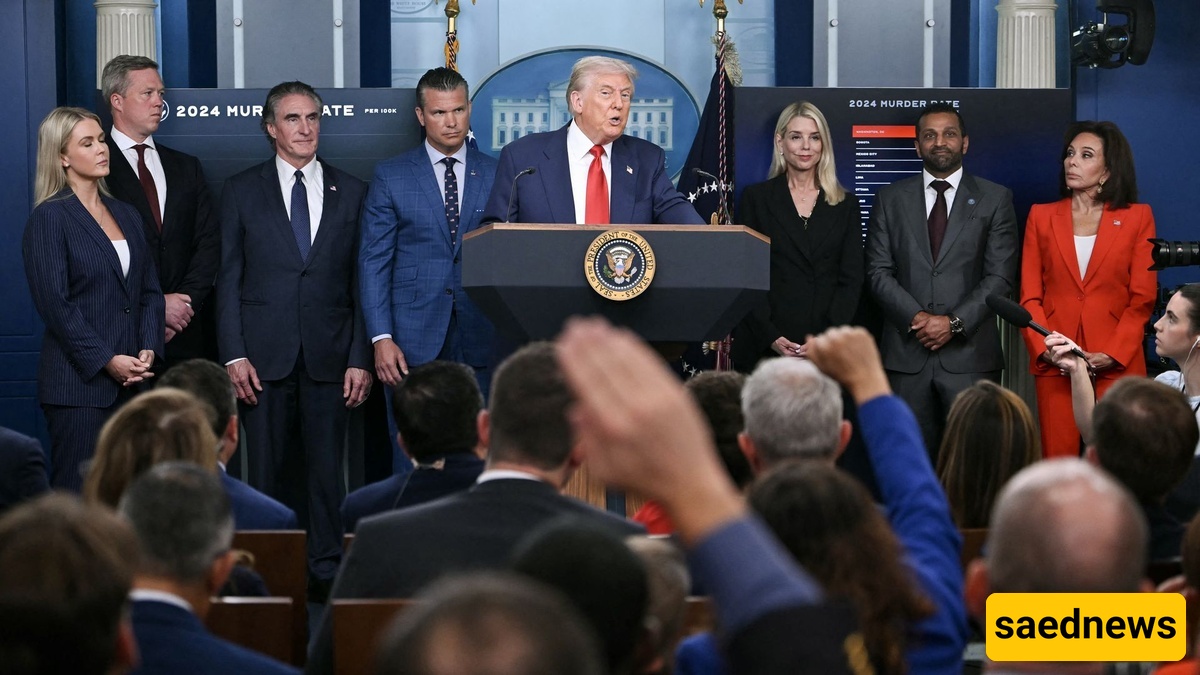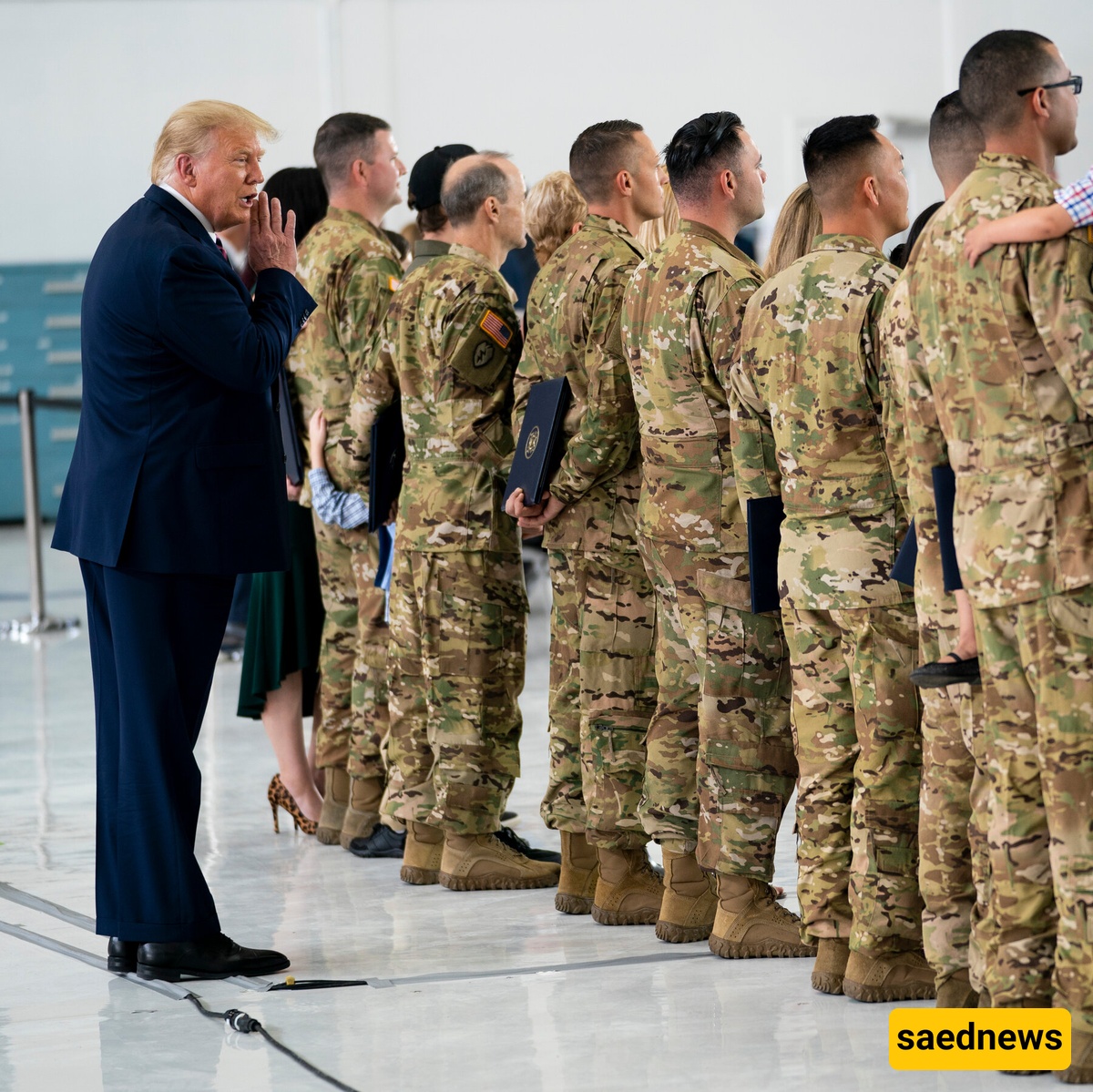SAEDNEWS: Donald Trump, using his legal powers, transferred control of the Washington D.C. police to the federal government and deployed hundreds of National Guard troops to the streets—a move that, despite a sharp decline in crime, quickly became a political and controversial issue, leaving Democrats confused and scattered in response.

According to SaedNews, quoting CNN, in an unprecedented move, President Trump announced on August 11, 2025, that under Section 740 of the “D.C. Home Rule Act,” control of the city’s police department would be temporarily transferred to the federal government. At the same time, 800 National Guard troops were deployed to the capital to “restore order.” In his press conference, Trump spoke of “dangerous and lawless groups” and described the action as “necessary for the safety of citizens.”

However, official statistics tell a different story. Police data shows that violent crime in Washington D.C. has dropped to its lowest level in three decades, declining by about 26 percent this year. Despite this, Trump ignored these figures and painted a picture of a crisis, calling it the “Capital Freedom Day”—a slogan with clear electoral overtones.
Democrats, in response, appeared scattered and uncoordinated. Mayor Muriel Bowser called the move “showy and exaggerated,” while the city’s Attorney General, Brian Schwalb, deemed it “illegal” and promised to explore legal options to challenge it. So far, however, none of these responses have slowed Trump’s political and media momentum.
Legal experts have warned that using emergency powers in the absence of a real crisis could set a dangerous precedent for federal intervention in urban affairs. Some reports even indicate that the Pentagon is planning to establish permanent rapid response forces in major cities—a plan that heightens concerns over the “militarization of domestic security.”
Meanwhile, relying on his narrative of insecurity, Trump has managed to seize the media agenda and put opponents on the defensive. Democrats, in contrast, have yet to develop a coherent response strategy—a gap that could become a political advantage for Trump in the coming months.

